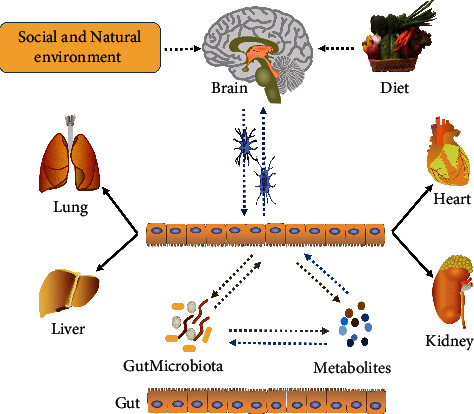Figure 1.

Interactions between diet and brain-gut-microbiome (including gut microbiota as well as metabolites). On the one hand, exposed to social pressure and natural environment, the host brain can regulate the gut functions (i.e., sensation, motility, and secretion) through nerve conductions and then influence the growth of gut microbiota, and vice versa. On the other hand, the food residues generated via digestion are subsequently fermented by gut microbiota, which can produce some metabolites; in turn, these bioactive metabolites can affect both microbiota and host gut and further send signals to the brain. Taken together, under healthy conditions, this intricate network remains in balance. In contrast, once the balance is broken, discomfort and even diseases will follow, including neurologic, respiratory, metabolic, hepatic, and cardiovascular illnesses.
